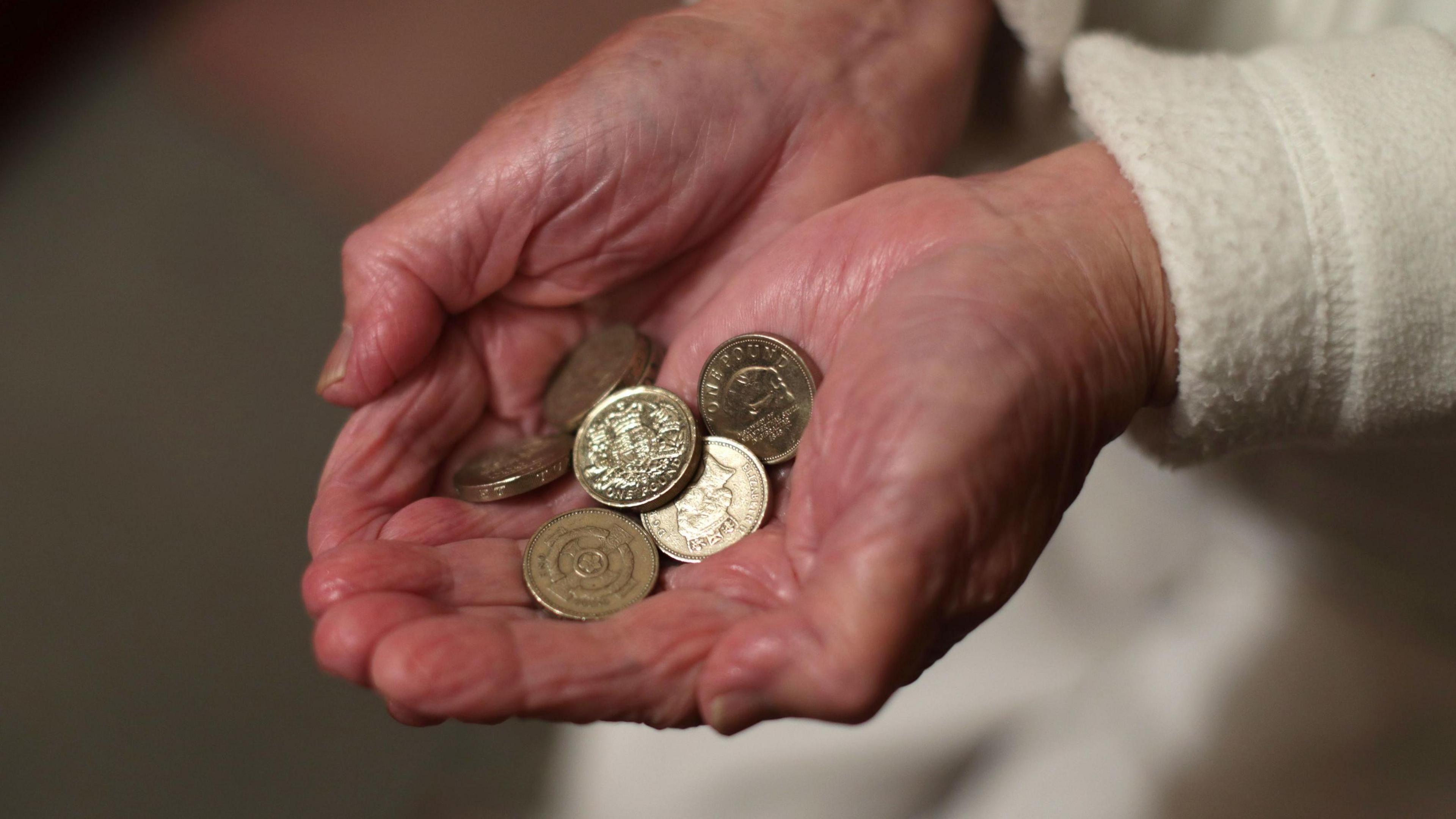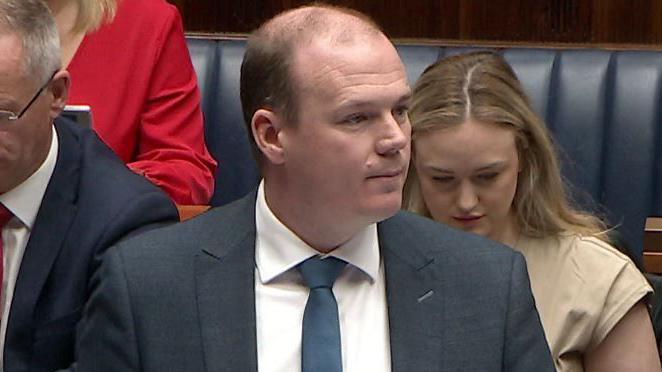Winter fuel payment cuts are bleak, says pensioner

Mary Small is 73 years-old and a volunteer in Age Care in Dungannon, County Tyrone.
- Published
A County Tyrone pensioner has said that cuts on winter fuel payments are "bleak" and she doesn't know how people will cope this winter.
On Tuesday, an attempt in the Commons to block cuts to the winter fuel allowance failed, after MPs voted down an opposition motion by 348 to 228.
Communities Minister Gordon Lyons said that it was "disappointing" that the UK government did not consult the devolved administrations about the decision.
He said the Northern Ireland Executive has "no choice but to follow suit".
'Eking out money'

It is estimated that about 249,000 pensioners in Northern Ireland will not receive a winter fuel payment this year
Under the plans, it is estimated about 249,000 pensioners in Northern Ireland will not receive a winter fuel payment this year.
Mary Small is 73 years-old and a volunteer in Age Care in Dungannon, County Tyrone.
Commenting on winter fuel payments cuts, she said: “I don’t know how people are going to cope, this summer has been atrocious here in Dungannon and I know people who haven’t turned their heating on yet, I don’t know how they’re going to manage.
“Everything has gone up, food has gone up, electricity has gone up, some people I know carry a little electric fire around with them from room to room.
“And then if they do away with free transport for pensioners, people won’t be able to afford to get into town and they don’t know how they’re going to pay for a fill of oil, so you just have people eking out their money from week to week, it’s bleak."
Commenting on Stormont’s role, she said: “They’ve been back long enough now, what have they been doing, how do they intend to pay for all these things?
“Having listened to the Programme for Government this morning, they should have started it off with –‘once up a time’, because that’s all it is, a fairy-tale.”

Gordon Lyons told the assembly that Northern Ireland could not afford to break parity
Speaking to BBC News NI's Evening Extra, the minister said the Executive did not have the funds to cover the payments.
"It wasn’t really a decision for the executive. The government didn’t give us time to prepare for any of the mitigations."
Mr Lyons said that he doesn't think the UK government has "properly considered" the decision, adding that there will be "health implications" and people "may even be hospitalised" as a result.
The minister had already confirmed Stormont would follow Westminster's lead, which will see payments means tested in future.
The annual payments are worth between £100 and £300.
Speaking earlier in the chamber Mr Lyons said: "Anyone saying this is about taking away a benefit from the richest in our society, they’ve got that wrong – over 80% of those who are currently entitled to a winter fuel payment will lose it.
"That inevitably means they are those on the edges and the fringes who are going to be very deeply affected by this decision.
Mr Lyons added that the estimated additional cost of Stormont maintaining the payments, without help from Westminster, was £44.3m for 2024/25.
He also said that an appropriate IT system to deliver the payments in Northern Ireland could cost between £5m and £8m and a further 20% of the development spend per staffing costs.
"Therefore, for the executive to even consider breaking parity on this decision by the Labour government would require significant cuts to Northern Ireland’s already struggling public services.
"To those who glibly say the executive could have made a different decision, I would ask them what they would cut or what services would they postpone?"
What will the changes mean?
From this autumn, those not on pension credit or other means-tested benefits will no longer get the annual payments.
The Department for Work and Pensions estimates about 249,000 pensioners in Northern Ireland will be affected.
Under the changes, about 57,000 pensioners will continue to receive it, with an estimated cost of £10.5m.
Section 87 of the Northern Ireland Act 1998 generally means that social security benefits are paid at the same rates and with the same conditions of entitlement across the UK.
Any deviation from this principle of parity that results in additional expenditure in Northern Ireland must normally be paid by central government in what is known as a block grant.
The Treasury block grant accounts for more than 90% of the funding used for the day-to-day operation of services in Northern Ireland.
The rest is raised locally from property taxes and other charges.